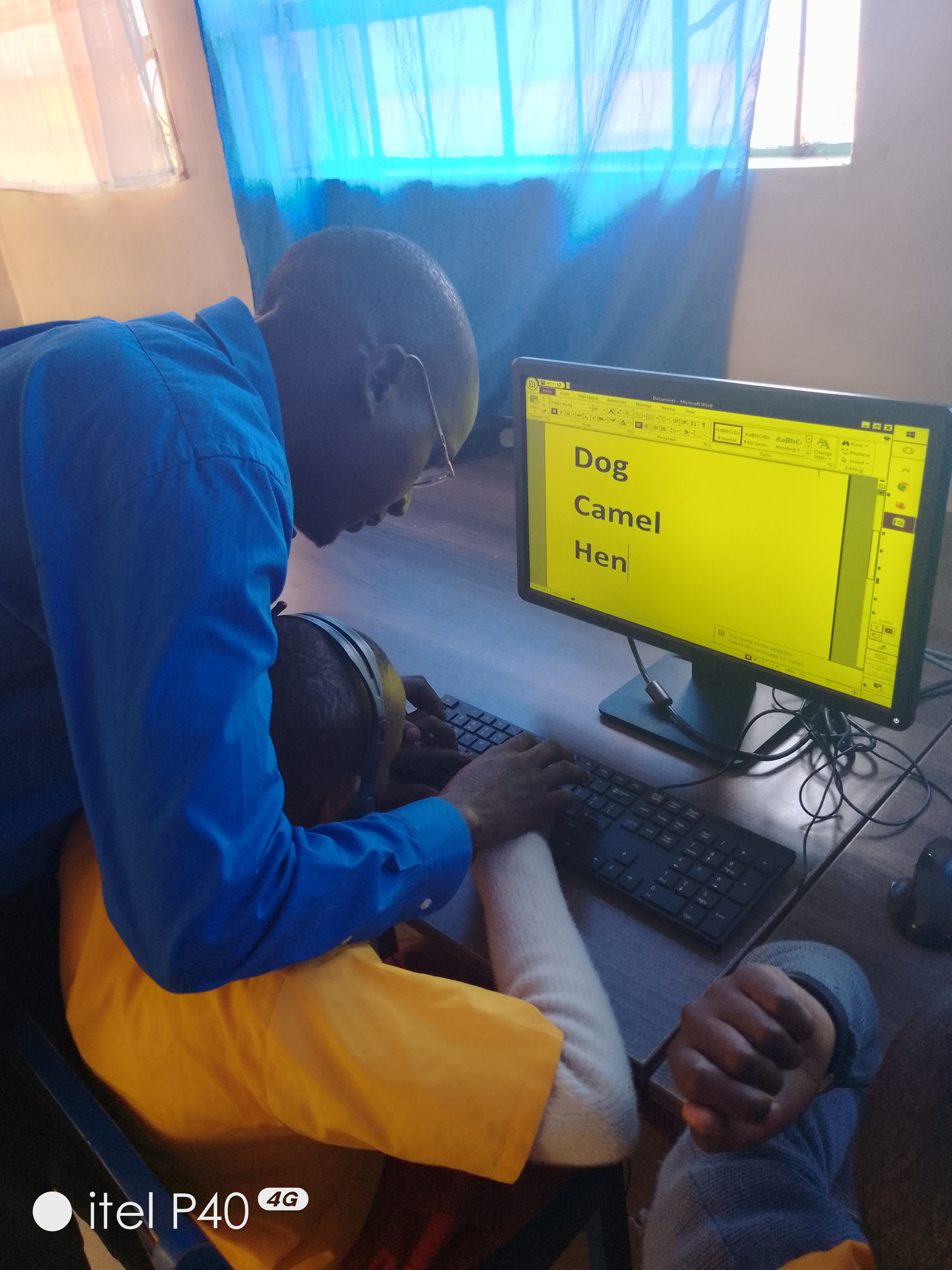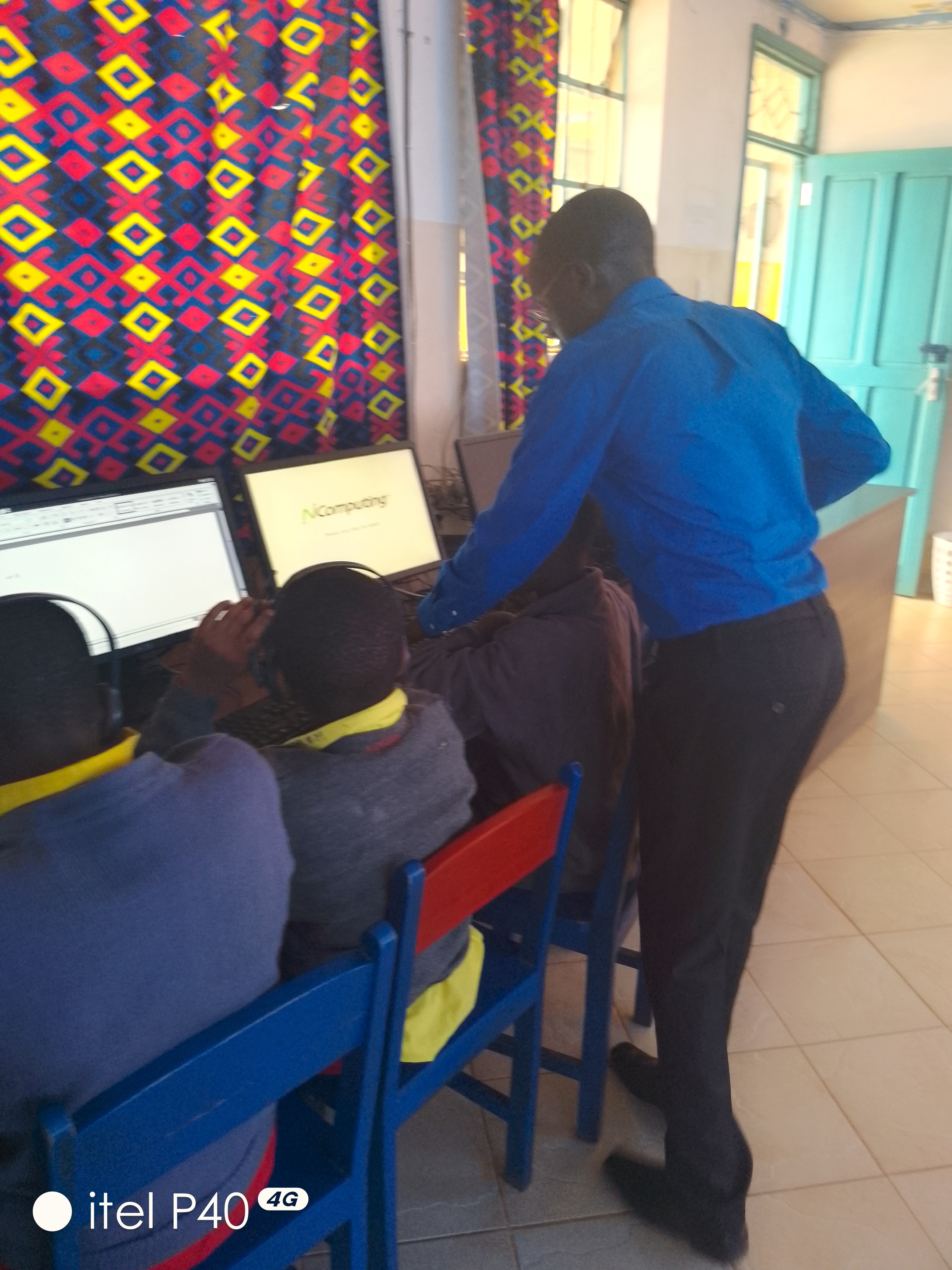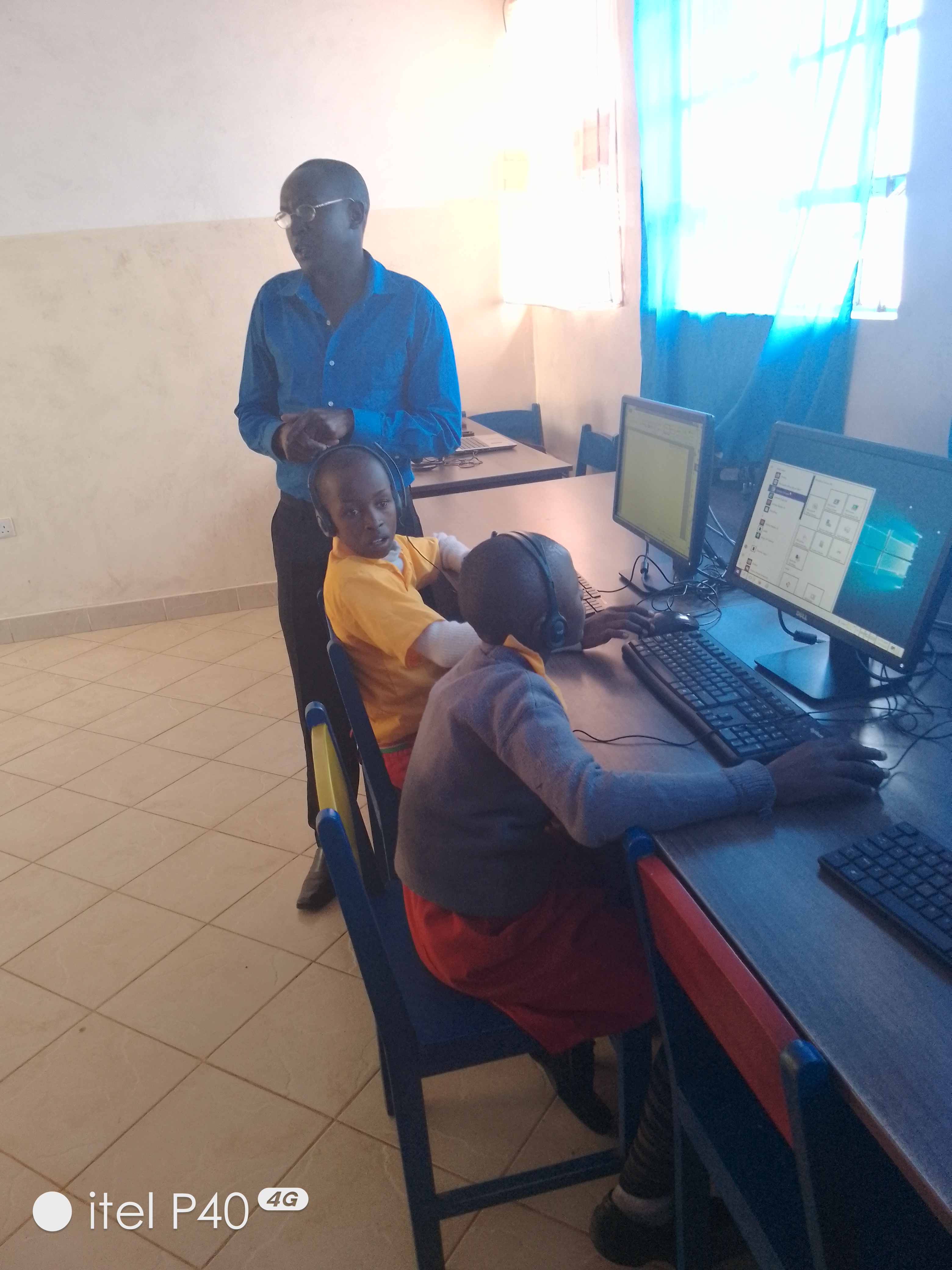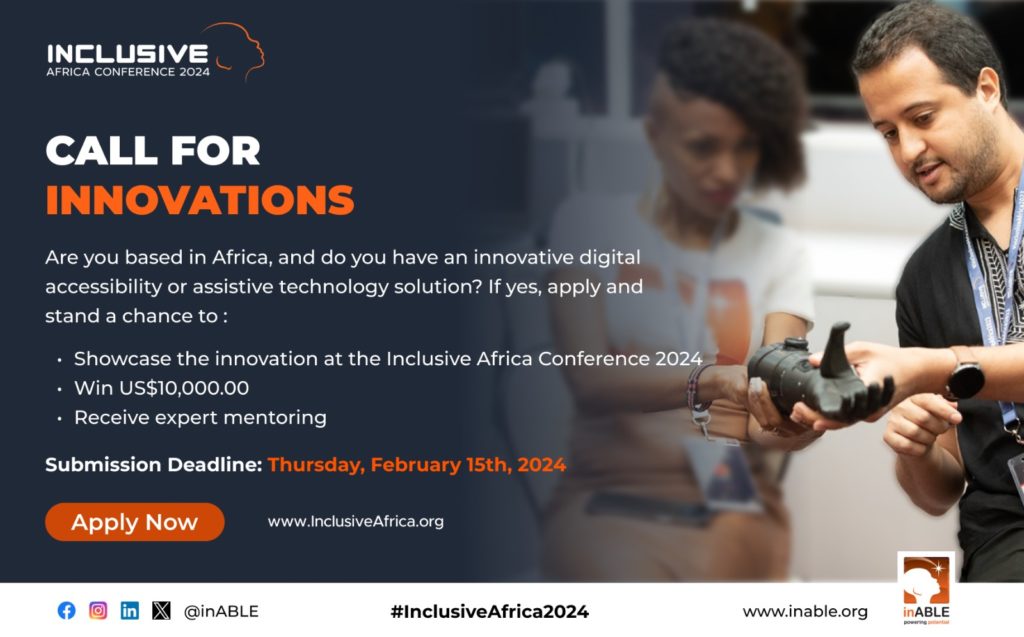Meet James: Empowering the Visually Impaired to Navigate the Digital World
inableAdmin
James Kosgei, a 36-year-old visually impaired individual, is making a significant impact as an assistive computer technology instructor at inABLE’s St Lucy’s School for the Blind computer lab in Meru county. His journey into teaching assistive technology began during his internship at inABLE, where he received training in assistive technology skills and later became an instructor.

“When I joined inABLE, I realized that as a visually impaired person, I could learn assistive technology and become independent in navigating advancing technologies just like anyone else,” James remarks proudly. This is particularly important considering that globally, at least 2.2 billion people have a near or distance vision impairment.
All machines in the computer labs for the blind are equipped with screen readers, empowering visually impaired individuals to use computers with minimal assistance. This technology fosters independence among visually impaired learners, a source of great pride for James, who himself is visually impaired.

He emphasizes the effectiveness of peer teaching as a technique for visually impaired learners. “Peer teaching, where visually impaired individuals learn from each other under the instructor’s supervision, has proven to be a powerful method,” James explains.
The labs utilize various assistive technologies, including Non-Visual Desktop Access (NVDA) screen readers and Adobe Reader for PDF documents. These tools are essential in ensuring a seamless learning experience for visually impaired students.
Reflecting on the past, James recalls a time when transitioning from high school to university posed significant challenges for visually impaired students due to the lack of assistive technology. Today, with the incorporation of assistive technology skills, blind students in universities and colleges can learn effectively, graduate, and contribute meaningfully to society. This is a significant achievement, especially considering that the unemployment rate for the blind and visually impaired is over 70%.

The computer lab serves as a hub for building a sense of community and support among students with visual impairments. “We make key documents accessible to visually impaired students in various formats, and we install assistive technology software suitable for their needs,” James shares.
James shares the same vision with inABLE in that he hopes that the computer program will extend to all blind schools across the country, ensuring that no visually impaired individual is left behind in acquiring assistive technology skills.
To fellow individuals with visual impairments, James offers valuable advice, saying, “You must accept yourself, believe in yourself, and put in the effort in learning how to use a computer. A visually impaired person can learn a computer and become independent like the able bodied in the community.”
He emphasizes the importance of expanding computer education opportunities for individuals with visual impairments. “Such initiatives not only enable them to keep pace with advancing technology but also empower them with the skills needed for independence and increased access to job opportunities,” James, who stands as a testament to the transformative power of education and assistive technology, breaking barriers and inspiring others to do the same, concludes. This is particularly important as only 44 percent of people who are blind or visually impaired are employed, compared with 79 percent of those without disabilities.
Experience the transformative power of assistive technology and digital accessibility at the Fifth Inclusive Africa Conference in Nairobi, Kenya, from May 14th to 16th. If you have a digital accessibility or assistive technology innovation making a difference in Africa, apply for the Digital Accessibility and Assistive Technology Awards. By applying, you stand a chance to feature your innovation at the Inclusive Africa Conference 2024, receive specialist mentoring, and potentially win a $10,000 grant, among other exciting opportunities. Don’t miss the chance to be part of this groundbreaking event!

Written by Lily Ronoh-Waweru, Multimedia Storyteller